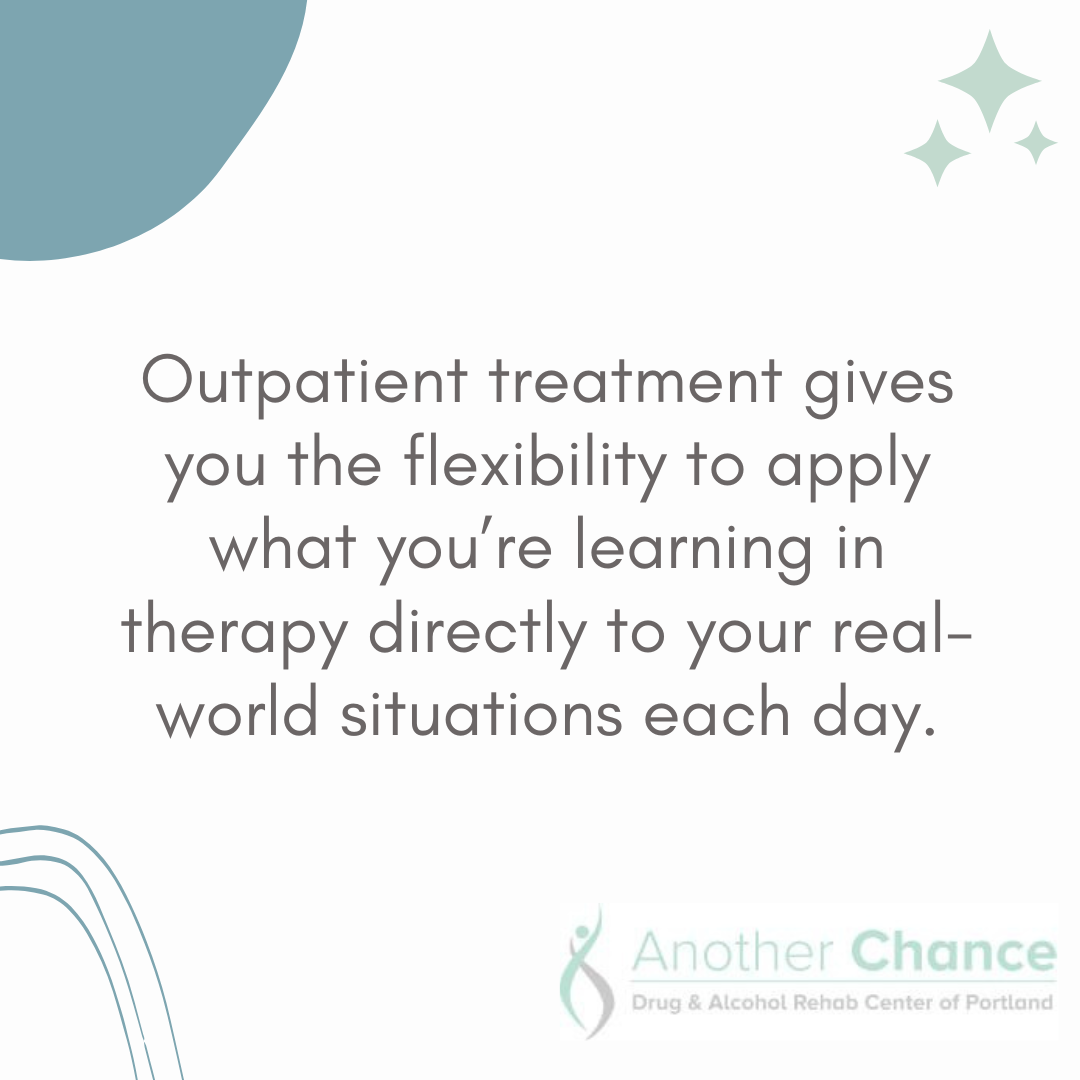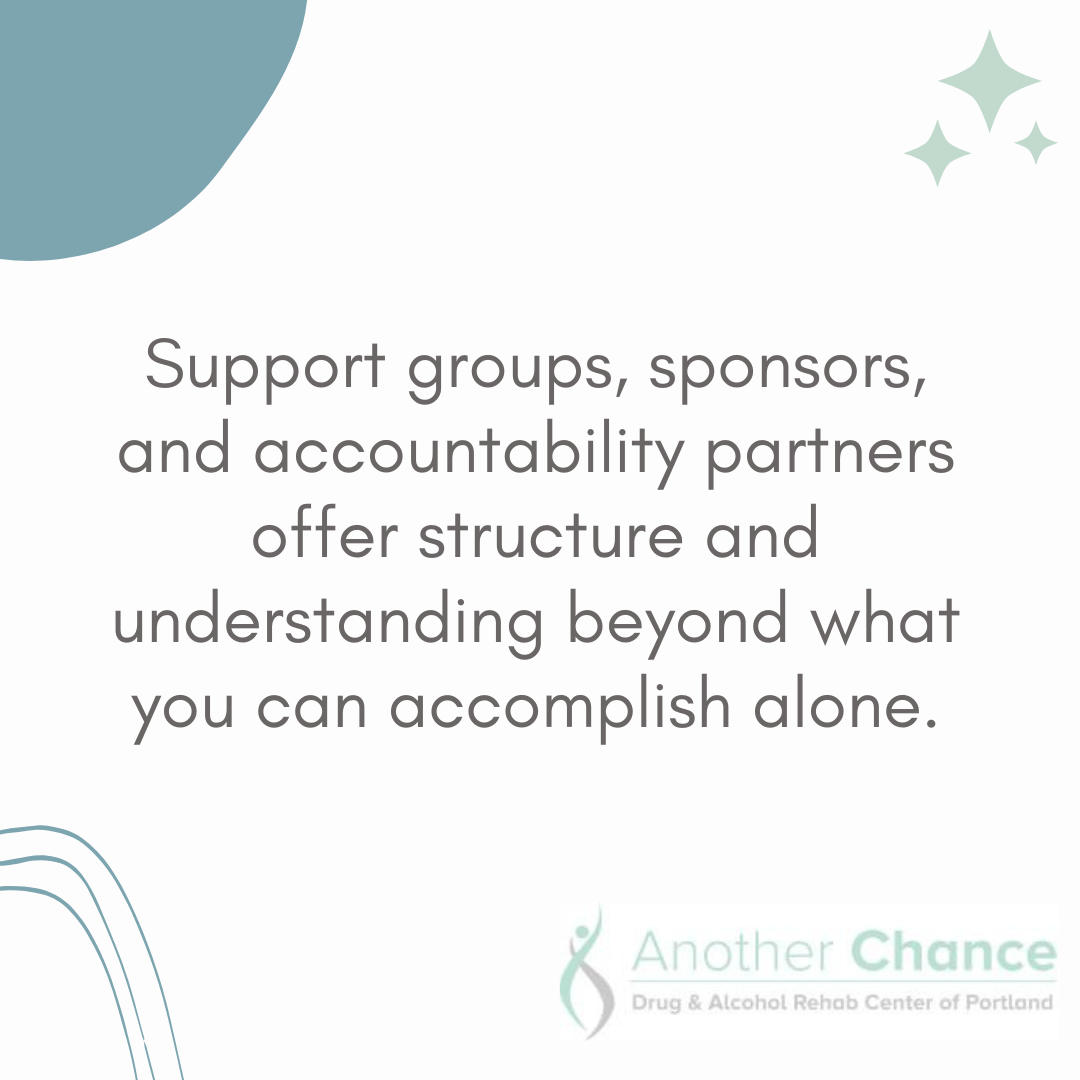November 14, 2025
Discover how to stay motivated during recovery with Portland outpatient treatment options. Learn practical strategies to stay engaged and on track.
Motivation can come and go. And it’s especially true when you're balancing life with recovery. Outpatient treatment is the route to take if you want to gain that flexibility to keep up with work, family, and everyday commitments while overcoming your addiction.
In the state, Portland outpatient treatment programs are there to help you enjoy that balance. Nonetheless, success ultimately depends on how you stay engaged throughout the process. In this post, we’ll break down proven strategies to stay motivated, maintain focus, and get the most out of your recovery journey.

Portland outpatient treatment is a recovery approach built for real life. Instead of stepping away from your daily routine, you stay right in it — going to work, caring for family, or attending classes — while attending scheduled sessions for therapy, education, and support.
But how does it differ from inpatient care?
Inpatient programs require you to live at the treatment facility, offering around-the-clock supervision and a highly structured environment. Outpatient treatment, on the other hand, gives you the flexibility to apply what you’re learning in therapy directly to your real-world situations each day.
In this setup, you’ll typically attend a combination of:
Even with the flexibility of outpatient care, staying on track isn't always smooth. When you're juggling recovery with work, school, or family responsibilities, it’s easy for motivation to fluctuate and harder to notice when you're slipping off course.
Recognizing these challenges early gives you the power to tackle them before they take over your journey toward breaking free from drug addiction. Here are some of the most common motivation-blockers during recovery:

Once you recognize the challenges that can knock your motivation off track, the next step is putting a plan in place to stay grounded. And that’s where goals come in.
In any professional setting, including Portland outpatient treatment, goals help you maintain structure and give you something meaningful to work toward as you balance daily life with recovery.
Short-term goals keep you focused on what needs to happen today or this week. Think attending sessions, managing triggers, or improving your sleep habits. Long-term goals, meanwhile, help you envision what success looks like months down the road. Simply put, they reinforce why you’re putting in the effort.
Both types work together to keep you accountable and emotionally invested in the process.
To stay motivated, one key step is to track your milestones, even the small ones. Noticing yourself handle cravings more calmly or rebuilding trust with family is proof that your efforts are paying off, even if the change feels gradual. And remember to celebrate those wins. Give yourself credit for the hard days you survived and the tough conversations you showed up for.
With your goals defined, the next step is surrounding yourself with people who help you stay accountable and engaged.
In outpatient drug and alcohol treatment — and in a high intensity outpatient program (HIOP) — support from peers, family, and counseling professionals can leave a positive impact on your recovery process. Whether it's someone who checks in when you're struggling or just a friendly face at group sessions, these connections keep you grounded.
Support groups, sponsors, and accountability partners offer structure and understanding beyond what you can accomplish alone. And staying connected doesn’t only happen during therapy. Text a peer when you’re feeling low, schedule a quick call with your sponsor, or share your progress with a trusted family member. Even small connections outside your sessions can strengthen your resolve and keep motivation alive.

Indeed, staying motivated in recovery takes effort, intention, and the right tools. Here are proven strategies that can help keep your momentum strong throughout outpatient treatment:
Sticking to a consistent daily routine can reduce stress and keep your treatment on track. When your days have structure, it’s easier to stay focused and avoid slipping back into old habits.
Your body and mind need nurturing. Prioritize sleep, balanced nutrition, exercise, and mindfulness practices. These habits not only boost your mood but also support overall healing, especially knowing how deeply addiction affects the brain.
Use a journal or a recovery app to log milestones, reflections, or challenges. Seeing your progress in a visual or written format reinforces that your hard work is paying off, even on tough days.
Every win matters, big or small. Whether it's a week without cravings or a breakthrough in therapy, take time to celebrate. These moments reinforce your commitment and help sustain motivation.
Be active in every part of your treatment — whether you’re attending an outpatient or HIOP Portland program. Participate in therapy sessions, complete assigned exercises, and show up for group activities. Engagement builds momentum and strengthens your investment in recovery.
Once you've established personal motivation strategies, tapping into long-term professional support becomes crucial for maintaining progress. Programs like outpatient treatment don’t just get you through the early stages. More importantly, they provide a structured environment for continuous growth. Over time, this structure helps you build on past victories while preparing you for new challenges.
Continued guidance from addiction counseling Portland professionals ensures you're getting feedback, support, and new coping tools as your life evolves. Pairing outpatient drug and alcohol treatment with long-term professional involvement helps keep relapse at bay and reinforces your resilience for the long haul.

Staying motivated in recovery takes effort: You plan ahead, surround yourself with support, and stay involved in your treatment. Each of these steps builds momentum and helps you stay focused, even when life tries to pull you off track.
The best part about all this is that you don’t have to do it alone.
As stated, programs like Portland outpatient treatment and HIOP Oregon give you expert backing and a judgment-free structure to help you stay committed for the long run. Ready to stay on course and build a stronger future? Reach out to Another Chance today!

Reviewer
Henna is a content strategist with over 5 years of experience in behavioral health marketing. She specializes in creating informed, compassionate content for addiction treatment centers, using her deep understanding of the industry to educate, engage, and support individuals seeking recovery.